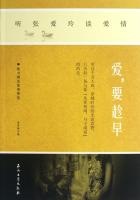Forthwith I returned from Melun to Paris, hoping for peace from him in the future. But since, as I have said, he had caused my place to be occupied by a rival of mine, I pitched the camp, as it were, of my school outside the city on Mont Ste. Genevieve. Thus I was as one laying siege to him who had taken possession of my post. No sooner had my master heard of this than he brazenly returned post haste to the city, bringing back with him such students as he could, and reinstating his brotherhood in their former monastery, much as if he would free his soldiery, whom he had deserted, from my blockade. In truth, though, if it was his purpose to bring them succour, he did nought but hurt them. Before that time my rival had indeed had a certain number of students, of one sort and another, chiefly by reason of his lectures on Priscian, in which he was considered of great authority.
After our master had returned, however, he lost nearly all of these followers, and thus was compelled to give up the direction of the school. Not long thereafter, apparently despairing further of worldly fame, he was converted to the monastic life.
Following the return of our master to the city, the combats in disputation which my scholars waged both with him himself and with his pupils, and the successes which fortune gave to us, and above all to me, in these wars, you have long since learned of through your own experience. The boast of Ajax, though I speak it more temperately, I still am bold enough to make: "if fain you would learn now How victory crowned the battle, by him was I never vanquished."(Ovid , "Metamorphoses," XIII, 89.) But even were I to be silent, the fact proclaims itself, and its outcome reveals the truth regarding it.
While these things were happening, it became needful for me again to repair to my old home, by reason of my dear mother, Lucia, for after the conversion of my father, Berengarius, to the monastic life, she so ordered her affairs as to do likewise. When all this had been completed, I returned to France, above all in order that I might study theology, since now my oft-mentioned teacher, William, was active in the episcopate of Chalons.
In this field of learning Anselm of Laon, who was his teacher therein, had for long years enjoyed the greatest renown. CHAPTER III OF HOW HE CAME TO LAON TO SEEK ANSELM AS TEACHERI SOUGHT out, therefore, this same venerable man, whose fame, in truth, was more the result of long established custom than of the potency of his own talent or intellect. If any one came to him impelled by doubt on any subject, he went away more doubtful still. He was wonderful, indeed, in the eyes of these who only listened to him, but those who asked him questions perforce held him as nought. He had a miraculous flow of words, but they were contemptible in meaning and quite void of reason. When he kindled a fire, he filled his house with smoke and illumined it not at all. He was a tree which seemed noble to those who gazed upon its leaves from afar, but to those who came nearer and examined it more closely was revealed its barrenness. When, therefore, I had come to this tree that I might pluck the fruit thereof, I discovered that it was indeed the fig tree which Our Lord cursed (Matthew xxi. 19; Mark xi. 13), or that ancient oak to which Lucan likened Pompey, saying: "he stands, the shade of a name once mighty, Like to the towering oak in the midst of the fruitful field."(Lucan, "Pharsalia," IV, 135-) It was not long before I made this discovery, and stretched myself lazily in the shade of that same tree. I went to his lectures less and less often, a thing which some among his eminent followers took sorely to heart, because they interpreted it as a mark of contempt for so illustrious a teacher.
Thenceforth they secretly sought !to influence him against me, and by their vile insinuations made me hated of him. It chanced, moreover, that one day, after the exposition of certain texts, we scholars were jesting among ourselves, and one of them, seeking to draw me out, asked me what I thought of the lectures on the Books of Scripture. I, who had as yet studied only the sciences, replied that following such lectures seemed to me most useful in so far as the salvation of the soul was concerned, but that it appeared quite extraordinary to me that educated persons should not be able to understand the sacred books simply by studying them themselves, together with the glosses thereon, and without the aid of any teacher. Most of those who were present mocked at me, and asked whether I myself could do as I had said, or whether I would dare to undertake it. I answered that if they wished, I was ready to try it. Forthwith they cried out and jeered all the more. "Well and good," said they; "we agree to the test. Pick out and give us an exposition of some doubtful passage in the Scriptures, I so that we can put this boast of yours to the proof." And they all chose that most obscure prophecy of Ezekiel.















